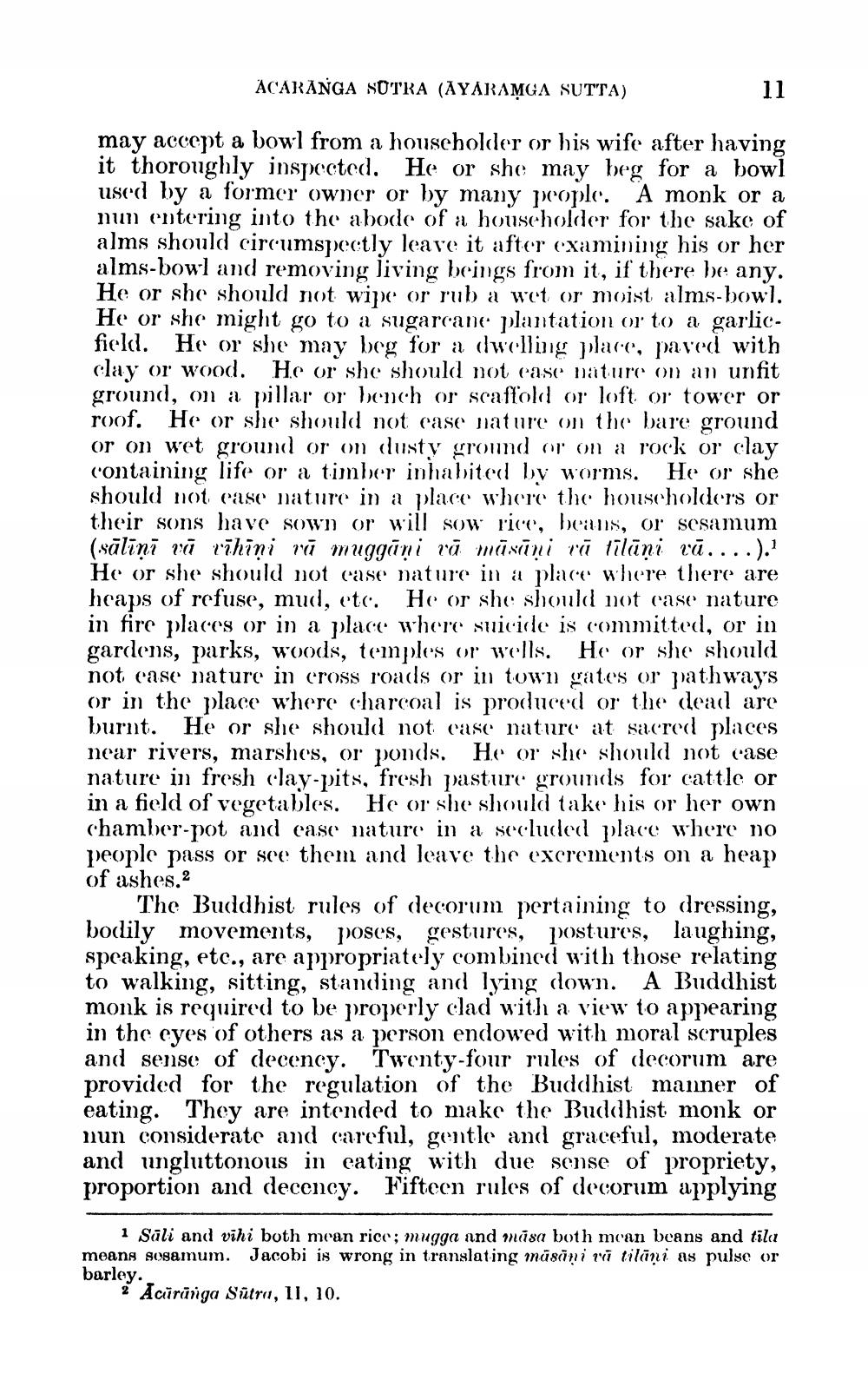________________
ACARANGA SUTRA (AYÁRAMGA SUTTA)
11
may accept a bowl from a householder or his wife after having it thoroughly inspected. He or she may beg for a bowl used by a former owner or by many people. A monk or a nun entering into the abode of a householder for the sake of alms should circumspectly leave it after examining his or her alms-bowl and removing living beings from it, if there be any. He or she should not wipe or rub a wet or moist alms-bowl. He or she might go to a sugarcane plantation or to a garlicfiell. He or she may beg for a dwelling place, paved with clay or wood. He or she should not ease nature on an unfit ground, on a pillar or bench or scaffold or loft or tower or roof. He or she should not case nature on the bare ground or on wet ground or on dusty grond or on a rock or clay containing life or a timber inhabited by worms. He or she should not ease nature in a place where the householders or their sons have sown or will sow rice', beans, or sesamum (sālīnī vī rīhini rā muggāni rā māsīni rū tilāni vā....). He or she should not case nature in a place where there are heaps of refuse, mud, etc. He or she should not case nature in fire places or in a place where suicide is committed, or in gardens, parks, woods, temples or wells. He or she should not case nature in (ross roads or in town vates or pathways or in the place where (charcoal is produced or the dead are burnt. He or she should not case nature at sacred places near rivers, marshes, or ponds. He or she should not case nature in fresh clay-pits, fresh pasture grounds for cattle or in a field of vegetables. He or she should take his or her own chamber-pot and ease nature in a secluded place where no people pass or see them and leave the excrements on a heap of ashes.2
The Buddhist rules of decorum pertaining to dressing, bodily movements, poses, gestures, postures, laughing, speaking, etc., are appropriately combined with those relating to walking, sitting, standing and lying down. A Buddhist monk is required to be properly clad with a view to appearing in the eyes of others as a person endowed with moral and sense of decency. Twenty-four rules of decorum are provided for the regulation of the Buddhist manner of eating. They are intended to make the Buddhist monk or nun considerate and careful, gentle and graceful, moderate and ungluttonous in eating with due sense of propriety, proportion and decency. Fifteen rules of decorum applying
1 Sāli and vihi both mean rice; mugga and masa both mean beans and tiler means sosamum. Jacobi is wrong in translating māsiini evi tilāņi as pulse or barley.
2 Acirurga Sūtra, II, 10.




